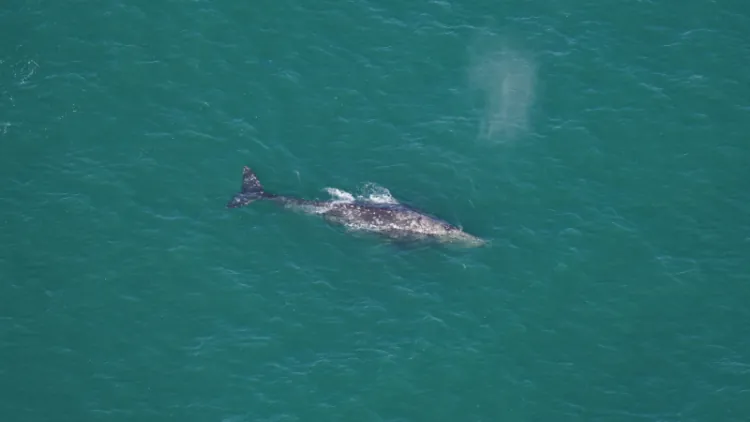Rare Gray Whale Sighting Near Nantucket Shocks Scientists
Discover the remarkable sighting of a gray whale near Nantucket, extinct in the Atlantic for over 200 years, and its implications

Introduction
- Overview of the gray whale sighting near Nantucket
- Significance of this discovery
The Sighting
- Details of the sighting on March 1, 2024
- Observations made by the New England Aquarium team
Historical Context
- Gray whale's extinction from the Atlantic
- Past sightings in the Atlantic and Mediterranean
Scientific Implications
- Importance of the sighting for marine biology
- Theories on the whale's appearance in the Atlantic
Climate Change Connection
- Role of climate change in altering marine habitats
- Potential for more such discoveries in the future
Conservation Efforts
- Efforts to protect gray whales and their habitats
- How this sighting impacts conservation strategies
FAQs
- Common questions about gray whales and their Atlantic presence
Conclusion
- The significance of this event for marine science and conservation
Introduction
In an event that has left the marine biology community both stunned and exhilarated, a rare gray whale was spotted 30 miles south of Nantucket on March 1, 2024. This sighting is groundbreaking as gray whales have been considered extinct in the Atlantic Ocean for over 200 years. The discovery raises important questions about climate change and its impact on marine life, offering a glimpse into the fluid nature of species distribution in response to global environmental shifts.
The Sighting
The New England Aquarium team conducted an aerial survey when they encountered the gray whale. For approximately 45 minutes, the team observed the whale diving and resurfacing, behavior indicative of feeding. This unexpected guest in Atlantic waters was identified based on distinct characteristics such as its lack of a dorsal fin, mottled gray and white skin, a dorsal hump, and pronounced ridges.
Historical Context
Gray whales were once native to the Atlantic Ocean but were driven to extinction in the region by the 18th century, primarily due to the whaling industry. However, in the last 15 years, there have been five recorded instances of gray whales in the Atlantic and Mediterranean waters, hinting at a possible shift in their migratory patterns or habitat preferences.
Scientific Implications
This sighting is a beacon of interest for scientists studying marine biology and ecology, suggesting the potential for previously extinct species in the Atlantic to reappear. Researchers are keen to understand the factors driving these majestic creatures back to a region they haven't inhabited for centuries, with climate change being a primary suspect.
Climate Change Connection
The re-emergence of the gray whale in the Atlantic Ocean is believed to be connected to the changing climate, which is altering marine habitats and migration routes. This event underscores the importance of monitoring the impacts of climate change on marine biodiversity and the necessity for adaptive conservation strategies.
Conservation Efforts
The sighting emphasizes the need for robust conservation efforts to protect gray whales and their natural habitats. It serves as a reminder of the resilience of nature and the importance of human actions in preserving the planet's biodiversity for future generations.
FAQs
Q: Why did gray whales become extinct in the Atlantic? A: Gray whales became extinct in the Atlantic primarily due to intense whaling activities in the 18th century.
Q: Can we expect more gray whales in the Atlantic? A: With climate change altering marine environments, it's possible that more gray whales could find their way into the Atlantic, though continuous monitoring is needed.
Q: What does this sighting mean for marine conservation? A: This sighting highlights the importance of marine conservation efforts and the need to adapt strategies in response to changing environmental conditions.
Conclusion
The sighting of a gray whale near Nantucket is a remarkable event that not only excites the scientific community but also offers hope and a reminder of the resilience of marine species. As we delve deeper into the implications of this discovery, it becomes increasingly clear that understanding and combating climate change is essential for the preservation of our planet's diverse ecosystems.
What's Your Reaction?





















